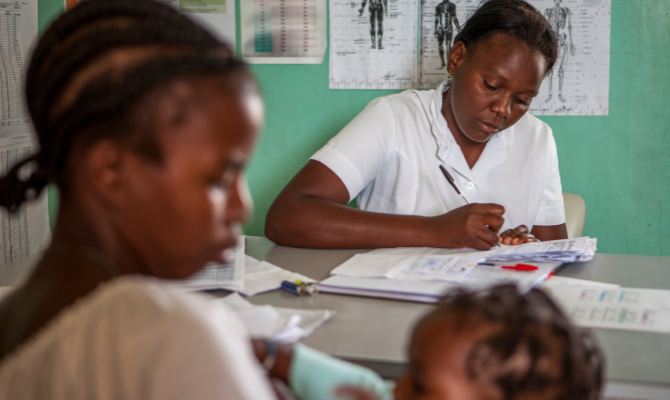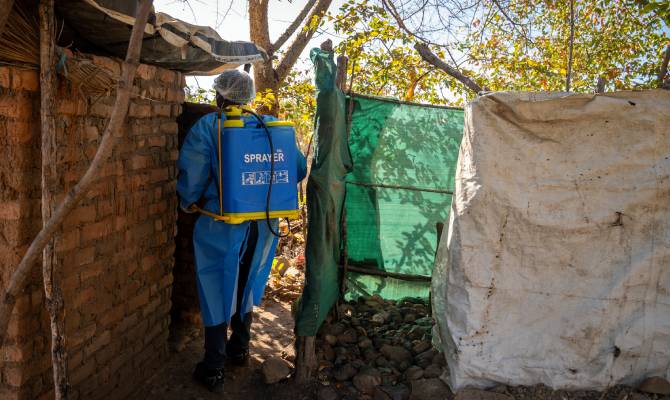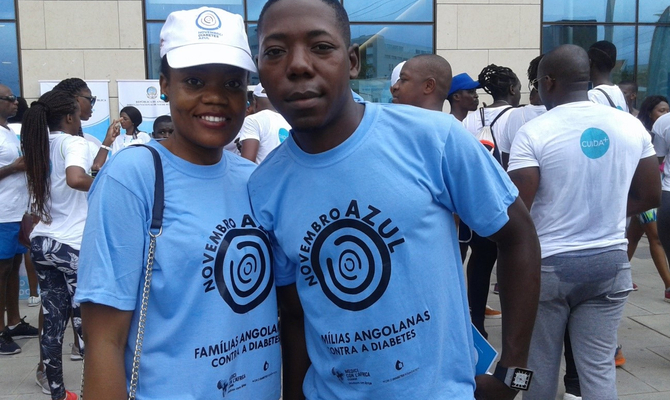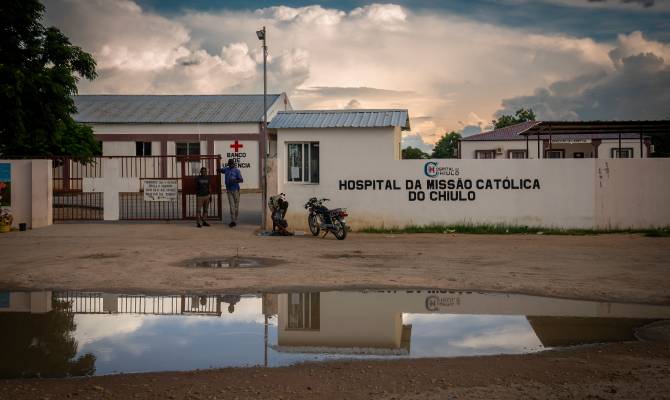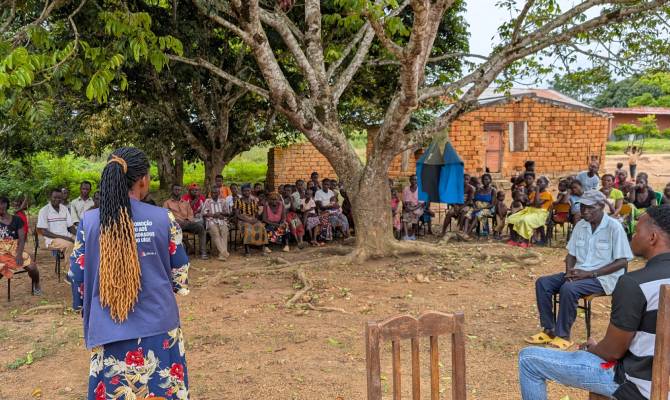Acting at all levels: through awareness-raising campaigns to inform about HIV/AIDS, trying to reduce the stigma and discrimination linked to the issue; offering free testing so as to identify people living with HIV, convincing them to get treatment and ensuring adherence to treatment, including through sessions and home visits on the importance and effectiveness of treatment; investing in training to strengthen the capacities of health personnel and local health authorities. It is called P.I.P.S.A. and it is the project focused on the integral protection for the HIV-positive patient, started in 2018, whose concluding event is being held today in Luanda, capital of Angola. Today is an opportunity to share the results of these years of continuous and dedicated commitment: 52 awareness campaigns carried out, reaching over 18,170 people; 38,325 people tested for HIV, 2,141 tested positive. And then the continuous training of 40 community health workers, 272 nurses, 46 doctors and 179 laboratory technicians.
This structured intervention is aimed at guaranteeing and improving continuous and integrated assistance services for HIV-positive people, some of whom also suffer from tuberculosis, in the Municipality of Kilamba Kiaxi, in particular at the Divine Providence Hospital, in the four health centres of the Hospital, and in the three health centres of the Municipality. The project is financed by the Italian Agency for Development Cooperation and implemented by the Italian Medical Missionary Union (Ummi) and Doctors with Africa CUAMM, in collaboration with local partners, the Divine Providence Hospital, the Municipal Health Department of Kilamba Kiaxi, the Provincial Health Directorate of Luanda, the LPV Association – “Luta pela VHIda” and the Association of Friends of HIV-positive People.
In addition to these activities, two scientific research were carried out, and a collection of testimonies was published: “Experiences and ways of hoping”, which tells how an HIV-positive woman with two children to bring up, without the support of a husband, feels and copes with the disease, or how a girl lives with the stigma within her own family and how it is possible to overcome it thanks to the awareness of the whole family; or the despair and desolation that can be felt at the moment of diagnosis, but also the hope for a better and normal life if treatment is properly followed. The story also highlights the essential work of community activists.
The World Health Organisation (WHO) and the UN agency for the fight against HIV and AIDS (UNAIDS) estimate that 340,000 adults and children in Angola are infected with HIV. Women are mainly affected, particularly in urban areas. The prevalence of HIV in Angola, namely the percentage of people aged between 15 and 49 affected by HIV, rose from 1.2% in 2001 to 1.8% in 2020, growing at an average annual rate of 2.24%. These figures highlight the importance of intense information and awareness-raising work on prevention and treatment of the disease, with particular attention to women, not least to prevent the transmission of the virus between mother and child.
Angola has reaffirmed its commitment to eliminating HIV infection by 2030: an enormous challenge that involves implementing the ‘Test and Treat’ strategy promoted by the WHO, which consists precisely in testing and immediately treating people found to be HIV-positive. This strategy aims to achieve UNAIDS’ “90-90-90” objective: to diagnose 90% of all HIV cases, to ensure that at least 90% of all diagnosed people have access to anti-retroviral treatment and to ensure that 90% of them achieve viral load suppression. The PIPSA project fits right into this context.
“The project has been very important in increasing the number of people tested in order to identify how many are living with the virus and to start treatment for patients who have tested positive,” says Yara Tembe, CUAMM project manager of the PIPSA. Another key aspect has been the continuous training of health personnel with the aim of building and strengthening their skills and competencies to improve the quality of care”.
Numbers and stories that speak for themselves and give hope for a better and more widespread awareness in the community of the importance of prevention and care. A change that takes time, that must start from the bottom, involving the entire community. Only in this way can we expect to win this challenge.
“I decided to accompany my sister to a routine visit. At the health centre, I ended up attending an HIV/Aids awareness meeting, where they were also testing. I did it and tested positive. I was in shock,” says one girl, “I started to wonder how my family would see me, I was afraid that I would not be able to have children and that my dreams would not come true. I felt that having HIV I would be useless to society. After all, society has a very negative and discriminatory view of people with this condition. I wondered how it was possible to live like this”.
It took time for the young woman to accept her condition and her new reality. It was meetings with community health workers and home visits that enabled her to accept her condition and start antiretroviral treatment. “Since then, I face my HIV status in a more normal way and experience treatment as a green light at the end of the tunnel. I am well, have an undetectable viral load and have regained the smile I had lost”.

